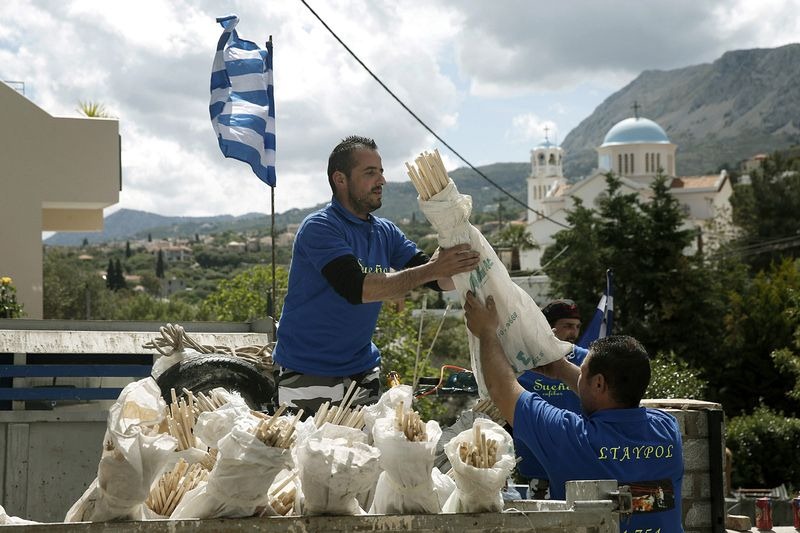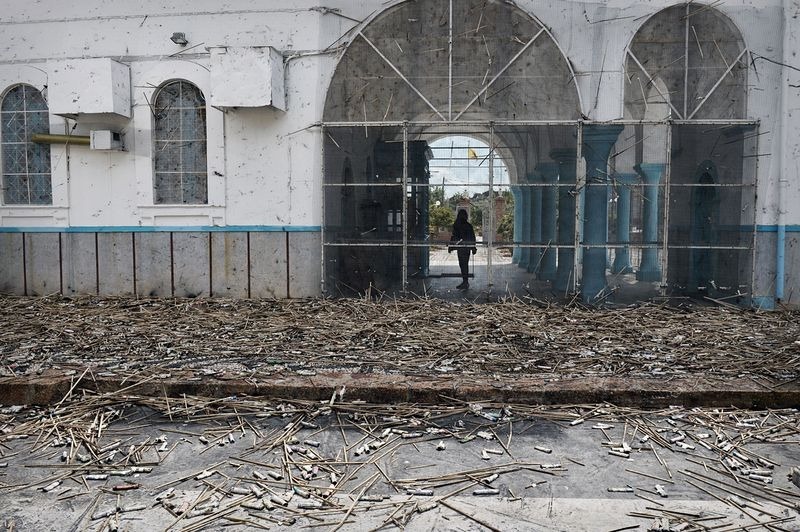Rouketopolemos: The Easter Rocket War of Vrontados | Amazing Images.
The Greeks like to celebrate Easter with fireworks, but the townsfolk
of Vrontados on the Greek island of Chios aren’t satisfied with simple
fireworks. So on the midnight before Easter Sunday, supporters of two
rival church congregations – Angios Marcos and Panaghia Ereithiani,
gather near their respective churches located on two different hilltops
about 400 meters away, and fire tens of thousands of home-made rockets
across the valley towards each other. The objective is to hit the bell
tower of the church of the other side. Direct hits on each belfry are
counted and the parish with the most hits is determined the winner. This
local traditional event known as Rouketopolemos, literally Rocket-War,
goes back at least to the Ottoman era. It is said that wars were
originally fought with actual cannons until the Ottoman Empire banned
that practice around 1889. Since then wooden rockets loaded with an
explosive mixture containing gunpowder have been used.

It is still a dangerous practice and the church buildings, as well as the nearby ones, have to be extensively boarded up with metal sheets and mesh to minimize damage. Chipped plaster and minor injuries surrounding fireworks are common, and occasionally stray rocket would cause small brush fires. The battle scars received during the night are still visible the next morning. Thousands of burned-out rockets lie in great heaps in the church yards, and stuck in the protective wire meshing. Understandably, not everyone is keen on participating. Many locals regularly express their dismay at the explosive nature of the custom, but Rouketopolemos happens to draw a lot of tourists and is a source of significant revenue for the area.















Sources: Wikipedia / World Wide Greeks. Photos: The Atlantic

It is still a dangerous practice and the church buildings, as well as the nearby ones, have to be extensively boarded up with metal sheets and mesh to minimize damage. Chipped plaster and minor injuries surrounding fireworks are common, and occasionally stray rocket would cause small brush fires. The battle scars received during the night are still visible the next morning. Thousands of burned-out rockets lie in great heaps in the church yards, and stuck in the protective wire meshing. Understandably, not everyone is keen on participating. Many locals regularly express their dismay at the explosive nature of the custom, but Rouketopolemos happens to draw a lot of tourists and is a source of significant revenue for the area.















Sources: Wikipedia / World Wide Greeks. Photos: The Atlantic